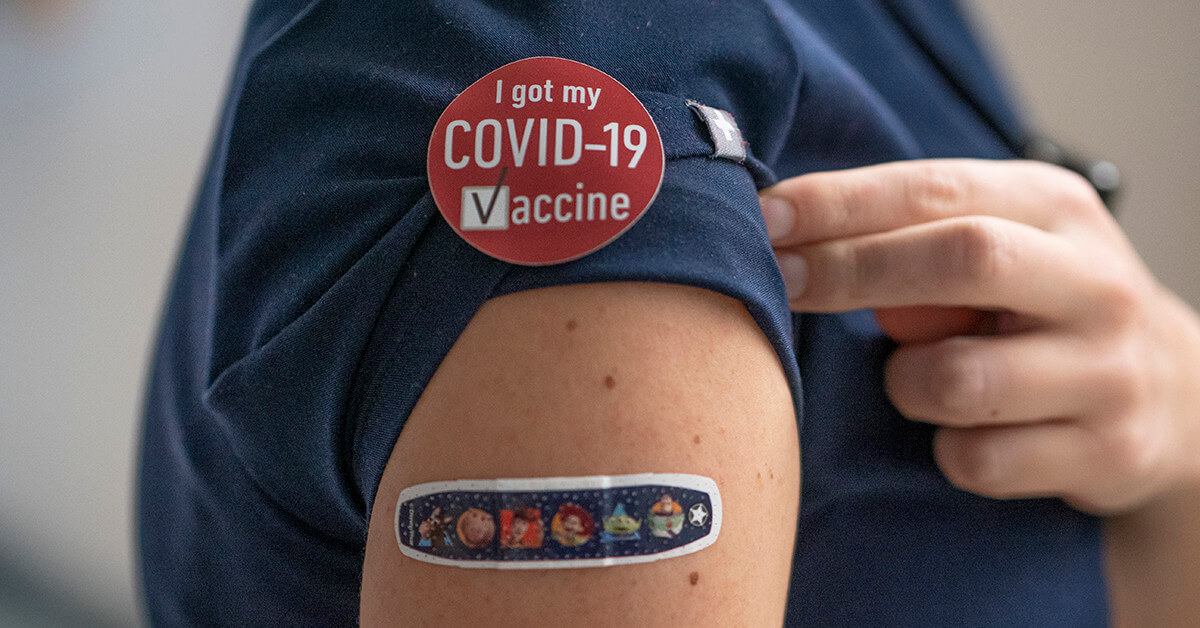
COVID-19 Vaccine Side Effects: What You Should Know
-
For over a year, the COVID-19 pandemic has had a serious impact on everyone across the world. This is especially true for cancer patients, their families, and their caregivers. But now, with the development and Emergency Use Authorization (EUA) of multiple COVID-19 vaccines, there is an end in sight to this pandemic and the additional concerns it has brought into the lives of those affected by cancer.
Through a rigorous clinical trial process, the COVID-19 vaccine has been found to be safe and effective in preventing people from becoming sick with the virus that causes COVID-19. While the vaccine was not studied specifically in cancer patients, expert medical groups (including the American Society of Clinical Oncology) are recommending that most patients with cancer or a history of cancer get the COVID-19 vaccine.
As more cancer patients receive their vaccinations, it’s important for them to know what side effects are expected and when its best to contact their care team.
Common Side Effects
Like other vaccines, after receiving the COVID-19 vaccine, you may experience some side effects. These are normal signs that your body is building protection against the virus, and they should go away within a few days.
Common side effects include:
- Pain, tenderness, or swelling in the arm where you got the shot
- Fever
- Chills
- Tiredness
- Headache
If you experience these side effects, there are a few steps you can take to reduce them, including:
- Using and exercising the arm where you received the shot or applying a cold compress to reduce any pain and discomfort
- Using an over-the-counter pain relief medication (such as acetaminophen) if you are experiencing achiness or a headache (if you haven’t been previously told not to use these medicines by your physician)
- Getting plenty of rest and drinking fluids
Rare Side Effects
In rare cases, some individuals have experienced minor allergic reactions (hives, swelling, or wheezing) or severe allergic reactions (anaphylaxis) to the COVID-19 vaccine. Severe reactions are not common but often take place within a short time period after getting the vaccine. Because of this, all sites offering the vaccine require individuals to wait at least 15 minutes after receiving it in case a reaction takes place.
If an allergic reaction occurs, the affected individual will be treated promptly by medical professionals.
Read more information on side effects from the CDC.
When to Give Your Care Team a Call
Because every cancer patient’s treatment is nuanced, there are a few side effects that would be best discussed with your care team if you are undergoing active cancer treatment and experience them. These side effects include:
- Vomiting or nausea that prevents you from eating or drinking
- A fever of 100.4 degrees Fahrenheit or higher
If you experience these side effects, your care team can help determine how to make you feel better.
If you’re a Fox Chase patient, you can reach out to our Nurse Triage team with any questions or concerns you have about side effects by calling 215-728-4300 (M–F, 8 am–5 pm) or 215-728-6900 (evenings and weekends).
Please keep in mind that it takes time for your body to build protection after any vaccination. COVID-19 vaccines that require two shots may not protect you until a week or two after your second shot, and even after receiving both doses, you should continue wearing a mask around others, practicing social distancing, and washing your hands frequently.
Getting vaccinated is the best way to protect yourself against COVID-19, and the development and availability of these vaccines is a huge step forward in science and medicine.
For more information on things you should know about getting the vaccine, watch this video from Fox Chase medical oncologist Dr. Jessica Bauman.
Medically reviewed by James Helstrom, MD, MBA, Chief Medical Officer of Fox Chase Cancer Center
